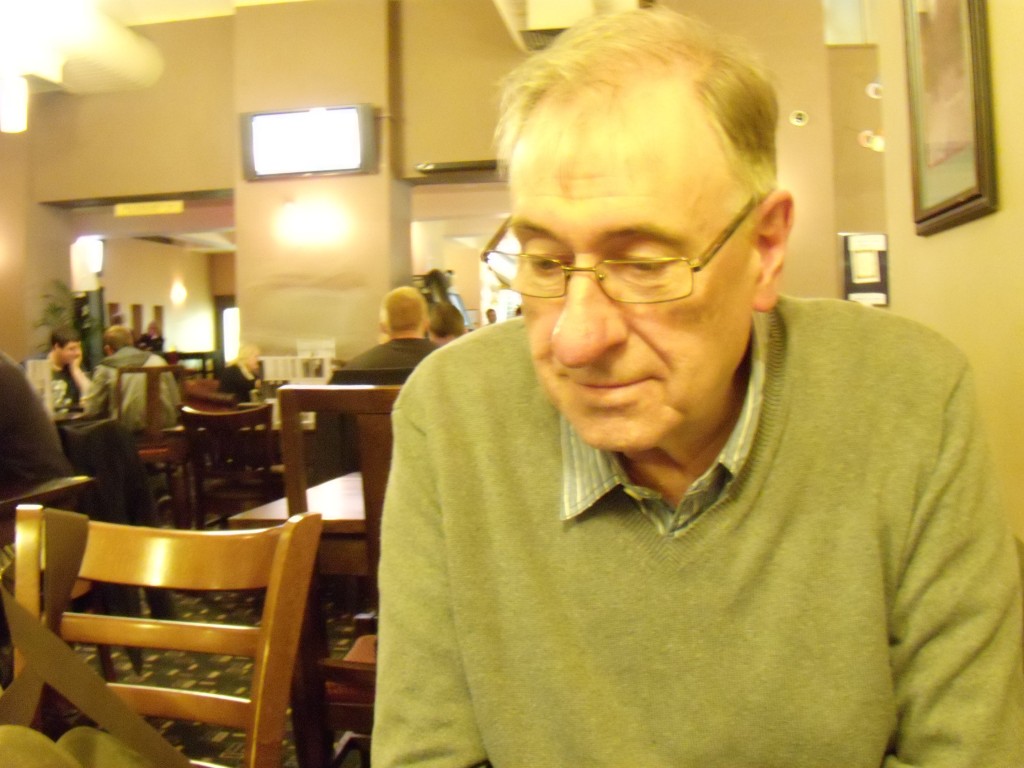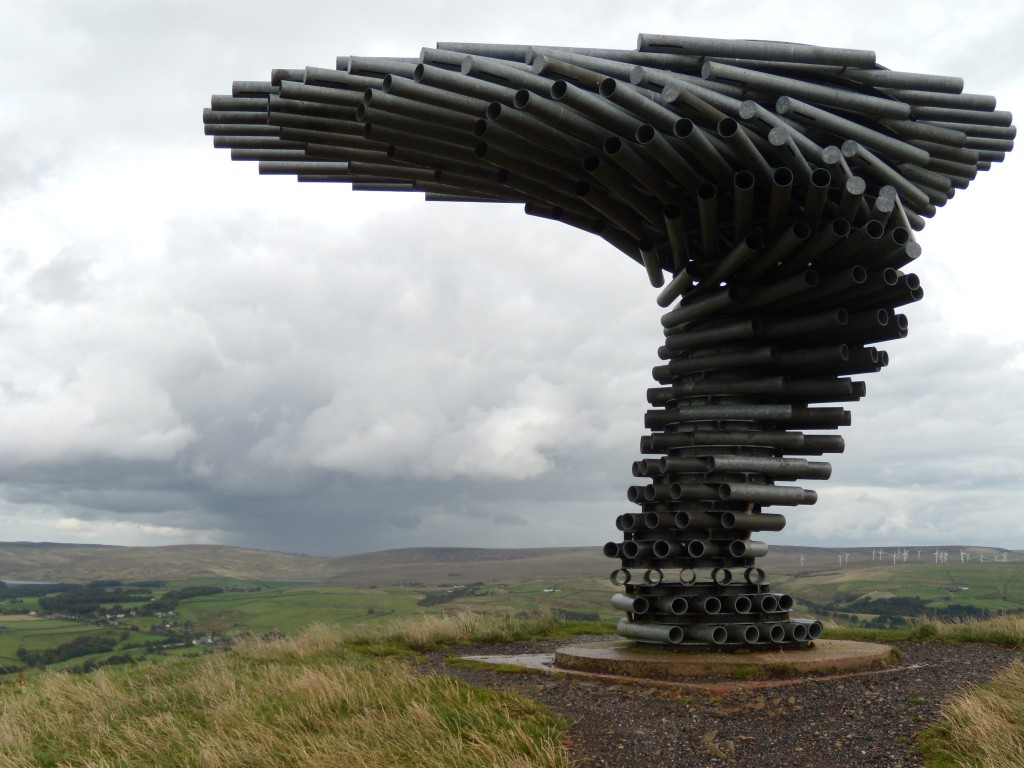Something I’ve been thinking about a lot recently is how the books I admire as a writer are not always the same books I want to read as a reader. The ideal – the point where the truly great books happen – is the nexus where these two vectors coincide.
I’m perplexed by this year’s Man Booker shortlist. Perplexed because although I successfully predicted four out of the six novels in contention (Mantel, Self, Moore, Thayil) the list still feels disappointing to me, insubstantial somehow. This isn’t just because I’m not a big fan of the two other titles on it (although I’m not – the inclusion of the paper-thin Levy is a total mystery to me, and although unfortunately I’ve not read the Eng the extracts I’ve sampled, both online and in bookshops, leave me with the impression that it is prone to purpleness, perhaps a bit saccharine) but because with the way the shortlist lines up it now feels as if there can be only one possible winner. It’s not even that I disapprove of that possible winner – he was my kind-of frontrunner from the start – but where’s the fun of the Booker without genuine debate?
I love Hilary Mantel – I think she’s one of the best writers working in this country at the moment and her novel Beyond Black is for me one of those ‘nexus books’, a novel that spurs me with envy as a writer and that engages me as a reader to the point of being seduced and ensnared from the very first paragraph. I haven’t yet read Bring up the Bodies, but I certainly will do, not just because I love Mantel but because I’ve been fascinated and horrified by the story of Anne Boleyn since I was about eight years old. The opening extract I read in The Guardian, with Thomas Cronwell flying his hawk, is a demonstration of everything high fantasy should aspire to, everything it could do and be if it tried harder and saw itself as literature, as writing, instead of just a churnforth of derivative stories. But in spite of knowing how much I’ll love Bring Up the Bodies, I can’t get excited by the thought of it winning the Booker. Mantel won in 2009 of course, with Wolf Hall. Bodies is a direct sequel to Hall. so as well as being the work of a writer who’s already won this prize, it’s work in the same mould. If BUtB were a completely different type of book from Wolf Hall, I’m sure I’d be cheering it on. As it is, in the context of the Booker, I just feel a bit lacklustre about it.
I’m delighted to see Alison Moore on the shortlist. The Lighthouse is a deftly worked, tightly wound little book of real merit and – again – genuine readability. Moore writes very well indeed, and the thing about her shortlisting that pleases me most is that it will bring her some deserved recognition and (I trust) be of assistance in moving her forward with her career. But The Lighthouse to win? For me, it’s too slight a book for that accolade. It seems to me that we should be demanding Booker winners with a thrust of greatness, a touch of madness, and a win for Moore would be like Anita Brookner’s win in 1984, when Hotel du Lac – how? how? – triumphed over J. G. Ballard’s Empire of the Sun.
I think what I’m missing is precisely that – that thrust of reckless greatness, that edge of madness. Will Self’s Umbrella – the book I’m tipping as the eventual winner – does seem to have both. From the extracts I’ve read, I sense that Umbrella is a genuine attempt to write a novel that challenges and surprises and rewards attention, a novel that (and here’s the point) has stretched its author to the limits of his ability and then some. It’s an earned book, a book that aspires to say something about literature as well as just telling a story. Is this not what we want from our Booker winners? I know I do. As a writer I admire hugely what Self’s done in Umbrella. But as a reader, the thought of it exhausts me. All that unrelenting ego, that insistent cleverness, for 400 pages. I just can’t – quite, yet – stomach the thought of it. I can’t help feeling that if I’m going to commit my reading time to a single book for an entire month there are so many other gaps in my reading – Gravity’s Rainbow, Infinite Jest, American Pastoral, Under the Volcano, Moby-Dick – that are in more urgent need of filling. When I read Adam Roberts’s review of Umbrella last month it made me shout with delight, so perfectly did it encapsulate the issues I have with a book like this. We know what Self’s doing, in other words, but do we care? I care, but not enough to leap upon Umbrella like unearthed treasure. If I can admire the ambition and worth of a book, but not feel desperate to read it, it’s only done half of its job. Which is sad. and this is something I feel bad about, because I want to love it.
Last week I read Nicola Barker’s 2004 novel Clear. Nicola Barker is special to me. She’s my almost exact contemporary, and whenever I think of her or consider her achievement I feel a deep-seated pang of guilt, that I somehow failed to get my shit together as early as she did, that I’ve spent the past decade of my life trying to catch up to where I should have been twenty years ago. Most of all though what I feel is pure admiration, thankfulness that such a writer as Barker exists, not just to inspire me as a writer but to create books that are such a blinding joy to read. I was reading Clear on our way to Brighton last Thursday, and Chris said I was making the whole railway carriage shake with my laughter. It’s true that almost every single page of the novel had its own laugh-out-loud funny moment. but Clear – like everything of Barker’s – isn’t ‘just’ funny. Where else but in Nicola Barker could you read an extended analysis of Kafka’s ‘The Hunger Artist’ and be having to stifle the giggles? Where else could London breathe and expand and erupt so magnificently filthily from its author’s devilish imagination without shedding its pristine glory? In Nicola Barker we have a writer who wears her (considerable) learning so lightly, with such impeccable judgement, that you can read any one of her books all the way through and simply enjoy it, revel in the linguistic dexterity and creative invention on every page without once feeling you’re been lectured at or talked down to or insisted upon. And yet Barker has more to say, more talent to demonstrate, than most of the ‘usual suspects’ put together. John Self, in his recent and very excellent review of Barker’s Booker-longlisted novel The Yips, said that ‘the central character is…. the finest character Martin Amis never created.’ Yes. And leading directly on from the same point, I was especially gratified to find John Self stating the following:
As in other Barker novels, The Yips is heavily populated with eccentrics and outsiders, the sort of people who struggle to fit into society – or into most fiction, for that matter. Fortunately, Barker handles them without going anywhere near the dreaded curse of whimsy. She does not look down on or mock her characters, and she takes the reader with her, sometimes literally.
Amis can be funny, yes, but he always tends to look down on his characters. More than that, he is snide. Barker is never snide. She writes her people into being with a deep empathy, with fellow feeling. She isn’t poking fun at the world she’s revealing, she’s inhabiting it. She understands the modern world and she understands people at an instinctive and personal level. Amis just… doesn’t. In contrast with many, I enjoyed Nicola Barker’s review of Amis’s latest, Lionel Asbo, because it was a piece of writing as well as a review, and it wasn’t afraid to go against the grain of prevailing opinion. (She likes it.) But oh is Nicola Barker ever the better writer. And I hope that, her admiration for Amis notwithstanding, she secretly knows it.
What all this means, I suppose, is that I’m mourning the absence of Nicola Barker from this year’s Booker shortlist. I’m still devastated that she didn’t win with Darkmans – in my opinion one of the first English masterpieces of the new century – in 2007. I felt certain that this had to be her year, and here she is denied yet again. This pains me. A Barker vs Self Booker – now that would have been something to get excited about.
Another ‘nexus’ book of 2012 for me has been Sam Thompson’s Communion Town. (You’ll find my review at Strange Horizons here.) While I was reading it I was excited and admiring in equal measure and I was always eager to get back to it – another crucial test for a ‘nexus’ book. More than that though and unlike so many the book has grown in my imagination since then. I now feel it’s an even better book than I thought it was in the first place, and feel almost personally aggrieved by the rather middling critical response it has received in the press and online. It has beauty and daring and knowingness and yes, that essential touch of the insane too, and I think it’s a book that will last. I can imagine reading Communion Town ten, twenty years from now and finding new pleasures in it. It should have been on the shortlist, dammit.
Before I forcibly curtail this oddly meandering rant, I do want to mention one book that bloody well should have been on the shortlist, only the judges saw fit to exclude it from the action entirely. That book is Keith Ridgway’s Hawthorn and Child. I started reading it on Sunday evening and it is brilliant. If M. John Harrison were to write a crime novel, this would be it. The writing is – exquisite is the wrong word, it’s too muscular for that, too restrained, but still its beauty, its sheer writerly competence, makes me shiver with excitement. And the way the book’s been written – the experiment and lesson in form it provides – is, for any writer worth their salt, just thrilling. Thrilling is what I mean, too, for this is a(n albeit very special and unusual type of) thriller. You can read this book and simply love it, or love it simply, for the story on the page. It’s a gem of a novel, literary riches. Were the Booker judges all in comas? Was it not submitted? What the hell’s going on?
And the absence of Kelman and Warner? Don’t get me started…
Oh well. One thing I learned around the time of the Clarke Award is that this kind of thing always happens. I spent a fair amount of time earlier this year, looking up previous Clarke shortlists and (where available) the lists of submissions, and what I discovered was that there have been notable exclusions in every single year since the award has existed. Even in those years where the shortlist seemed strong, there were always better books that were inexplicably missed off. And then every now and then you get a total cock up. Bound to happen. So it goes.
None of this is particularly surprising. I find it useful to remember when I’m ranting (or perhaps when I’ve finsihed) that the Booker judges (like the Clarke judges) are just six people, sat in a room. Compromises happen, trade-offs happen, shit goes down. An empirically ‘true’ shortlist cannot exist. Because it cannot exist, there are people who question the value of the Booker, of the Clarke, and of awards generally. I am not one of them. I love awards – not because I aspire to win them or because I set any exceptional value on the work of those who do, but because awards provide an arena for debate. I love to talk about books, I love to get angry about books, and something that gives me especial pleasure is to see other people getting passionate and just a little bit crazy about books also. The Booker provokes impassioned debate – every year it does it, regardless of whether people generally love the shortlist or think it’s a pile of pants.
And that always makes me very happy.







